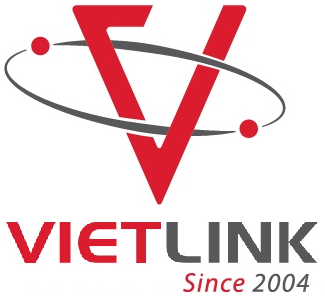DETAILED INSTRUCTIONS ON IMPORT PROCEDURES FOR POWDERED MILK.
Procedures for Importing Milk Powder
Procedures for importing powdered milk are always a matter of concern for processing companies. Because milk and products made from milk have long been an essential commodity
.
Content:
- 1. Import policy of powdered milk products
- 1. Self-announced products
- 2. Quarantine and inspection of food safety and hygiene
- 3. Customs clearance
2. HS CODE to import powdered milk products
3. Some notes when importing powdered milk
For a long time, the procedure for importing milk powder has always been a matter of concern for milk processing companies. Because milk and products made from milk have long been an essential commodity, when the domestic supply is not enough to meet the domestic market, the import of powdered milk is a necessity. What documents does the import of powdered milk need, how are the steps are taken, and what is the cost? All those questions will be answered in our article today.
1. Import policy of powdered milk products
Powdered milk is not on the list of products banned from import or when importing requires permission, so when carrying out procedures for importing powdered milk, enterprises can carry out normal procedures. However, if it is the first batch, you need to have some relatively complicated operations that need to be done in the order below.
Import policy of powdered milk products
1. Self-announced products
When you want to import powdered milk, you need to self-declare for the product you want to import. This is a mandatory requirement because if not announced, your goods will be detained at Customs or re-exported. This requirement is detailed in Article 2 of Decree 15/2018/ND-CP.
To perform this step, businesses need to have a sample including the core of milk inside and the packaging. Then send the sample to a licensed unit for testing, after having the results, the enterprise submits a self-announced application and waits for the results from the authorities. Which, self-declared documents when carrying out procedures for importing powdered milk will include:
Food self-declaration (Form No. 1 of Decree 15/2018/ND-CP)
Certificate of food testing results with a term of fewer than 12 months according to ISO 17025
Certificate of business registration of the enterprise
Milk powder samples, labels, and product images.
2. Quarantine and inspection of food safety and hygiene
Milk powder is like all other food products. When you want to import, you need to ensure food hygiene and safety and animal quarantine before customs clearance.
3. Customs clearance
A set of documents for customs clearance requires the following documents:
Certificate of Quarantine
Certificate of food safety and hygiene
Customs declaration
Contract of sale and purchase of powdered milk
Commercial purchase and sale invoice
The finished product packing slip
Bill of lading
Certificate of Origin
2. HS CODE to import powdered milk products
Based on the dairy products imported by enterprises, they will have their own HS codes, which are mainly:
Milk imported as raw materials for the production of dairy products will have HS as: 0401.10.10; 0401.10.90; 0401.20.10; 0401.20.90; 0401.40.10; 0401.40.20; 0401.40.90; 0401.50.10; 0401.50.90
Ready-to-drink milk powder with HS code 0402.10.41; 0402.10.49; 0402.10.91; 0402.10.99
When doing procedures for importing milk powder, enterprises need to clearly determine which HS code the products their company wants to import, thereby making standard documents to avoid wasting time editing records and storing goods that cost a lot of money. fee.
3. Some notes when importing powdered milk
When doing procedures for importing milk, you need to find out what procedures are required to import powdered milk and what steps to go through. In which the issue of product announcement is extremely important and costs time as well as money. However, that difficulty only happens in the first shipment, from the second shipment onwards you can use the inspection results and self-published records for all subsequent times.
Some notes when importing powdered milk
In addition, enterprises carrying out procedures for importing powdered milk also need to pay special attention to the accompanying documents, in which the Health Certificate provided by the partner is a must-have document to serve the customers. Quarantine steps when imported milk arrives at the port. Without this type of paper, the shipment will not be eligible for quarantine and also cannot go through the next procedures for customs clearance.
Particularly for products imported from markets such as Japan, Korea, or European countries, Vietnamese enterprises need to ask their partners to apply for CO to enjoy tax incentives.
Besides, because it is a food item, powdered milk needs to be stored in conditions with appropriate temperature and humidity. Whether shipping by sea or by air, Vietnamese dairy importers also need to pay attention to the conditions of goods preservation, avoiding damage that will not be possible through food safety inspection documents, unable to pass through extremely large financial losses.
And the most important thing when carrying out procedures for importing powdered milk is that businesses need to choose for themselves a reputable and quality transport unit capable of ensuring all problems.


main.comment_read_more